3 Educational Influences
Influencers
The individuals mentioned in the educational influencer list below were noted philosophers and educators who sought to change the status quo. By advocating for the welfare and education of children they were instrumental in bringing an awareness that childhood is an important stage of life. It is critical to note that there were other influences from the field of psychology and medicine that also informed the field of early care and education.
Frederich Wilhelm August Froebel (1782-1852)[1]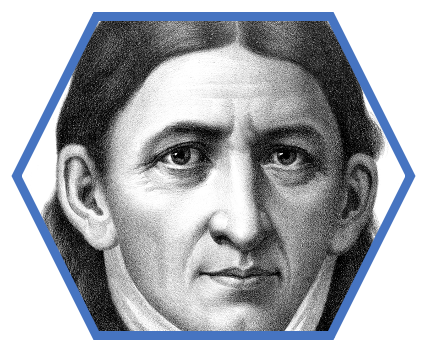
- Thought of as the father of kindergarten (which is taken from the German kindergarten – children’s garden)
- Was designed for children ages 2 – 6
- Believed that play was essential for the child to develop selfregulation
- Instruction was through blocks, pets, and finger plays
- Designed the first educational toys which he called “gifts”
- The role of the adult was to facilitate learning experiences through delightful adventures providing ideas and materials for children to explore
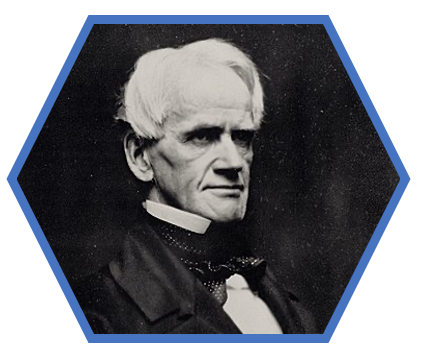
Horace Mann (1796-1859)[2]
- Promoted universal and equitable education
- Believed in the value of training to enhance teacher quality
- Early education reformer
Maria Montessori (1870-1952)[3]
- First female physician in Italy
- Work began with children who lived in the slums of Rome who were considered poor and mentally retarded
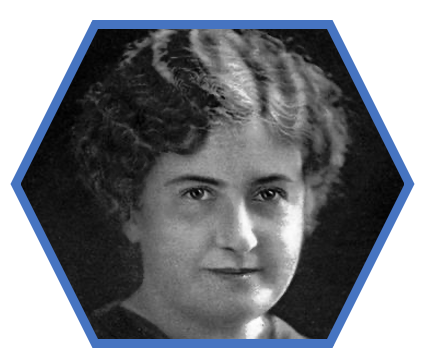
- Opened a preschool, Casa di Bambini, to provide motivation and an environment that supported their growth and development
- Designed materials that were self-correcting and aesthetically pleasing using natural materials to draw children’s attention and develop self-help skills
- Saw that these children had potential, something that nobody else saw at that time.
Rudolf Steiner (1861-1925)[4]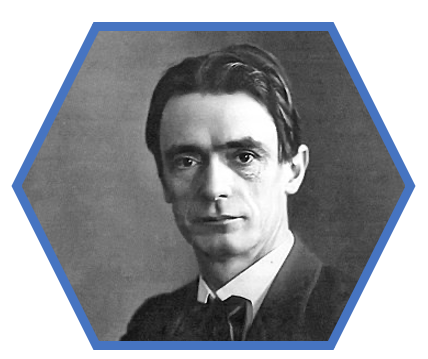
- Founded Waldorf approach to education
- Thought childhood was divided by three periods of development
- The will (0 – 7)
- The heart (7 -14)
- The head (14 years on)
- In the first period of development, “the will,” the environment must be carefully planned to protect and nurture the child to enable children to explore
- Teachers were trained to understand this and to provide those experiences
- Focus on storytelling as a means of providing educational experiences
John Dewey (1858-1952)[5]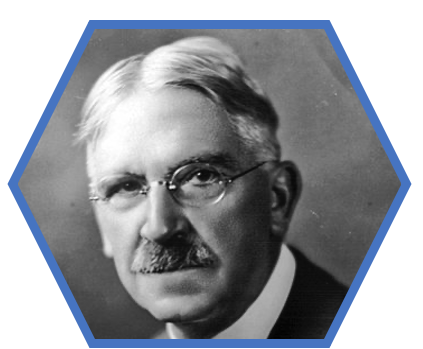
- Established a lab school
- Dewey’s pedagogic creed includes the following ideology:
- Groups provide opportunities for children to make and share friendships, solve problems and cooperate
- Schools should be child-centered
- The importance of supporting the child’s home by enhancing it in the school
Rachel McMillian (1859-1917) & Margaret McMillian (1860-1931)
- Developed their school to address the filth that slum children lived within in London
- Pioneered the nursery school movement that focused on a play-centered approach
- Provided meals, medical attention, and hygiene
- Lobbied for the 1906 provision of school meals act
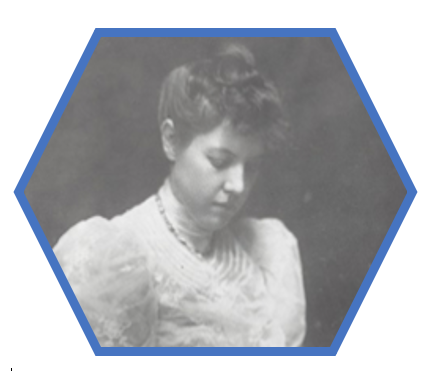 Patty Smith Hill (1868-1946)[6]
Patty Smith Hill (1868-1946)[6]
- Founded National Association for Nursery Education (NANE) which evolved into the National Association for the Education of Young Children (NAEYC)
- Co-wrote the Happy Birthday song with her sister Mildred Hill, a Louisville, Kentucky music teacher
Lucy Spraque Mitchell (1878-1967)[7]
- Created the Bank Street Lab School where teacher research took place
- Developed the idea of schools as community centers
- Believed that schools were places for children to learn to think
Fannie C. Williams, (1882-1980)[8][9]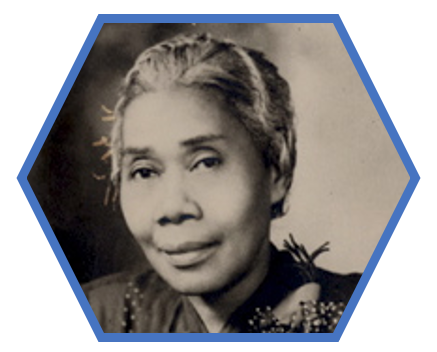
- Pioneer of African American education.
- She believed in the holistic development of children (mental, physical, emotional, and spiritual).
- Instituted quality tests to measure student success.
Susan Issacs (1885-1948)
- Educational psychologist and psychoanalyst
- Interpreted Freudian theory for early education
- Wrote The Nursery Years
- Promoted nursery school movement
- Believed the best way for children to learn was through play
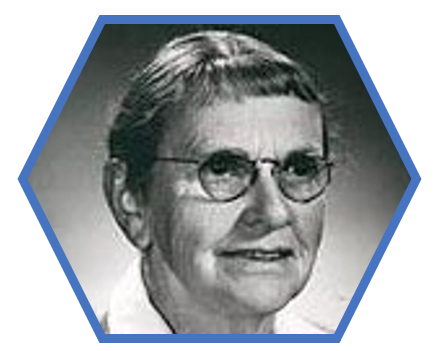 Abigail Elliot (1892-1992)[10]
Abigail Elliot (1892-1992)[10]
- Brought the nursery school movement to the United States
- Founded the Ruggles Street Nursery School, teaching children and providing teacher training.
- Was the first woman to receive her doctorate at Harvard University Graduate School of Education
- Helped establish Pacific Oaks College in California
Loris Malaguzzi (1920-1994)[11]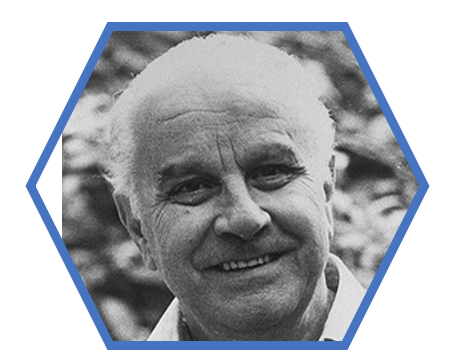
- Developed Reggio Emilia Approach
- Believed education should be child-centered, self-directed, hands-on, and project-based
- Proposed concept of “the hundred languages,” the idea that children communicate what they are thinking in many ways beyond words, such as painting, dramatizing, and sculpting
- Advocated for the importance of the environment, which is referred to as the third teacher
- Involved families and the community in education
The individuals mentioned in the influencer list were noted philosophers and educators who sought to change the status quo. By advocating or the welfare and education of children they were instrumental in bringing an awareness that childhood is an important stage of life. It is critical to note that there were other influences from the field of psychology and medicine that also informed the field of early care and education.
The following interdisciplinary influences have contributed directly and indirectly to education, they run separate but parallel from the philosophers and educators on the roadmap, moving through time on their own track. As you consider these influences think about how their philosophies and theories intersected with education and child development.
Attribution
- Friedrich Fröbel lithograph, Open Domain via Wikimedia Commons. ↵
- Horace Mann photograph by Southworth & Hawes, open domain image via Wikimedia Commons ↵
- Mara Montessori. (2022, February 8). In Wikipedia. https://en.wikipedia.org/wiki/Maria_Montessori ↵
- Rudolf Steiner. (2022, April 5). In Wikipedia. https://en.wikipedia.org/wiki/Rudolf_Steiner ↵
- John Dewey. (2022, April 8). In Wikipedia. https://en.wikipedia.org/wiki/John_Dewey ↵
- Patty Hill.(2022, April 3). In Wikipedia. https://en.wikipedia.org/wiki/Patty_Hill ↵
- Lucy Spraque Mitchell. (). In Wikipedia. https://en.wikipedia.org/wiki/Lucy_Sprague_Mitchell ↵
- Williams, Fannie C. (1882-1980): Amistad Research Center. Williams, Fannie C. (1882-1980) | Amistad Research Center. (n.d.). Retrieved April 4, 2022, from http://amistadresearchcenter.tulane.edu/archon/?p=creators%2Fcreator&id=402&msclkid=37bf24ccb43911ec93de4a93aa68a7f3 ↵
- Fannie William image [open domain] in Who was Fannie Williams. Fannie Wiiliams Charter School website. https://fcwcs.org/about-fcw-charter/who-was-fannie-c-williams/ ↵
- Abigail Elliot. (2021, November 12). In Wikipedia. https://en.wikipedia.org/wiki/Abigail_Adams_Eliot ↵
- Loris Malaguzzi. (2022, February 22). In Wikipedia. https://en.wikipedia.org/wiki/Reggio_Emilia_approach ↵

